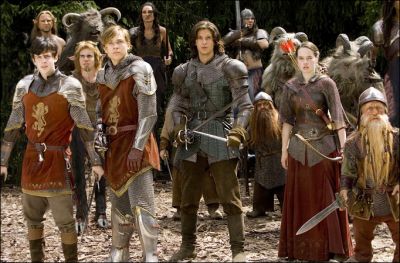Until recently if you saw “churches” and “Disney” in the same sentence, you might expect the word “protest” to be lurking somewhere in between. But now Disney, which has run afoul of certain evangelical groups in the past, is wooing those same people in an attempt to create a film franchise the magnitude of “The Lord of the Rings” crossed with “The Passion of the Christ.”
For this equation to work for “The Chronicles of Narnia: The Lion, the Witch and the Wardrobe,” however, Disney won’t be the only party stretching its boundaries. It’s one thing for a disenfranchised church-going audience to flock to an overtly religious statement such as Mel Gibson’s “The Passion of the Christ.” It’s quite another for them to embrace something they’ve traditionally shunned: a Hollywood fantasy.
“The Lion, the Witch and the Wardrobe,” which Disney will release nationwide Dec. 9, is the first feature-film adaptation of the late British author C.S. Lewis’ beloved, immensely popular seven-book “Narnia” series. A tale of four siblings who discover a wondrous land through the back of a wardrobe – and become entangled in a classic tale of good vs. evil amid talking animals and other magical creatures – “The Lion, the Witch and the Wardrobe” has been a favorite of young readers since its 1950 publication.
Many of these readers have enjoyed this story and subsequent books as pure imagination-tickling fantasy. But the faith community also long has embraced “Narnia” and its author, considered an important religious writer for books such as “Mere Christianity,” an argument for orthodox Christianity. They don’t have to squint too hard to see the parallels between Jesus Christ and “Narnia” hero Aslan, the majestic lion who sacrifices himself for humans’ salvation.
So the movie, directed by “Shrek” co-director Andrew Adamson and starring Tilda Swinton as the White Witch and Liam Neeson as the voice of Aslan, offers Disney a rare opportunity to reach two massive audiences: the young, fantasy-oriented moviegoers who turned the Harry Potter series and “The Lord of the Rings” into lucrative franchises and the often-movie-averse Christian population that propelled “The Passion of the Christ” to unprecedented box-office heights.


